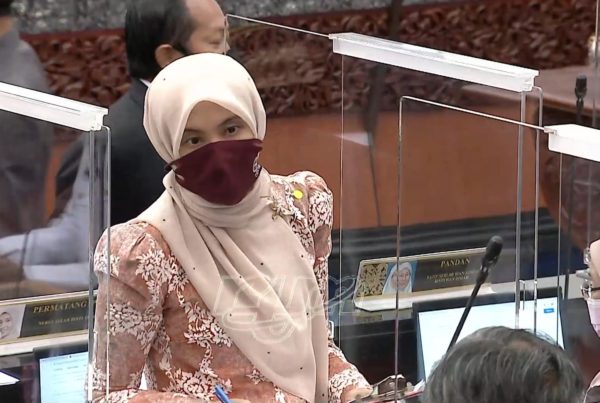FOR IMMEDIATE RELEASE
MEDIA STATEMENT
According to figures released by The Employees Provident Fund (EPF), almost 80% of workers who will turn 55 this year will not have enough savings in their Employees Provident Fund (EPF) to live above the RM830 poverty line.
This is not surprising.
First, about 90 percent of Malaysian households’ incomes are attributed to wage and salary, including self-employment.
Second, for the past 15 years as well, the salaries of Malaysian workers have been lagging behind our productivity; at roughly 45 percent in manufacturing. This roughly translates into the fact that our workers are under-paid by at least 45 percent.
Third, more than 90% of the wage-earning workforce do not enjoy meaningful income levels. Only 11.05 percent of government income is generated from personal income tax and only 1.7 million of the 12.4 million workforce are eligible to pay tax.
EPF also reported that more than 75% of its contributors earn RM2,000 monthly or less. Malaysia is a low income earning nation despite the government’s spiel of progress towards achieving high income nation status.
The Private Pension Administrator (PPA) chief executive officer Datuk Steve Ong had earlier stated that the rule of thumb is to ensure that one has two-thirds of the last drawn salary to maintain one’s lifestyle past the retirement age.
This ideal rule will also be difficult to achieve considering that salary is relatively stagnant and not surpassing the inflation rate.
One of the major challenges facing developing Asia today is how to provide affordable, adequate, and sustainable old-age income support for a growing elderly population.
This is a matter of urgent concern particularly in East and Southeast Asia where countries are at a more advanced stage of the demographic transition from a youthful to an older population.
According to the HSBC Future Retirement Survey, “In Malaysia, 88 per cent are concerned about not having enough money to live day-to-day in retirement. Forty-one per cent said buying a house and paying the mortgage has dented their ability to save for retirement while another 30 per cent said paying for their children’s education reduced their savings.” The pension crisis is a serious issue and needs to be immediately resolved.
Malaysia has established its Employees Provident Fund in 1951. The pension systems of China, Indonesia, Malaysia, and Singapore are defined contribution or notional defined contribution while those of Korea, Philippines, Thailand, and Viet Nam are defined benefit. Defined contribution systems are generally prefunded while defined benefit systems are not.
The defined contribution pension practiced in Malaysia pays a lump sum consisting of accumulated contributions and interest income upon retirement. Due to population ageing, weakening of family-based support, and other factors, old-age income support is becoming an issue of growing importance throughout South East Asia.
The diagnosis of the current state of Asian pension systems should make it abundantly clear that there is an urgent case for pension reform in Malaysia. The time has come for the pension scheme to be reviewed to avoid the impending pension crisis.
We need to have a well-designed pension system that can satisfy ideal systemic issues for adequacy and sustainability. We need to address failures in function performance and system design. These two failures are essential for pension reform. Certainly, there would be no one-size-fits-all solutions but the lack of care that the government has placed on the future of aging Malaysians is shocking to say the least.
I have been reliably informed of internal discussions within the EPF on the said issues. There must be a push for pension and salary reform.
First, we need to strengthen and build our institutional capacity.
Second, we need to improve governance and regulation of our current pension systems. Strong governance and regulation are essential for the operational efficiency and transparency of any pension system.
A third area of reform is to expand coverage. Coverage in Malaysia is still far from universal and there remains substantial scope for further widening coverage. We need to make sure our golden citizens are well cared for.
Malaysia needs to start paying more attention to social protection. This shift is required as part of a more inclusive growth strategy. In light of Malaysia’s rapid population ageing, a particularly important component of social protection is to protect the old from not having adequate income to meet their needs. We need an economic system which includes the poor and the marginalized.
Let not Malaysia’s ambition to become a high income nation be an excuse for an absent workable pension system; and an excuse for deepening inequality.
The case for urgent pension reform in Malaysia addresses both the economic as social fronts. the government must reform our pension system and the salary of our workforce.
Nurul Izzah Anwar
Member of Parliament for Lembah Pantai
Keadilan, Vice President and Election DIRECTOR


